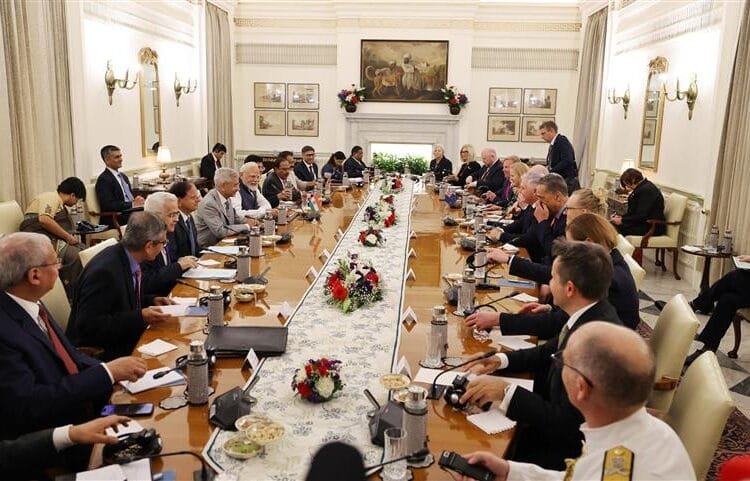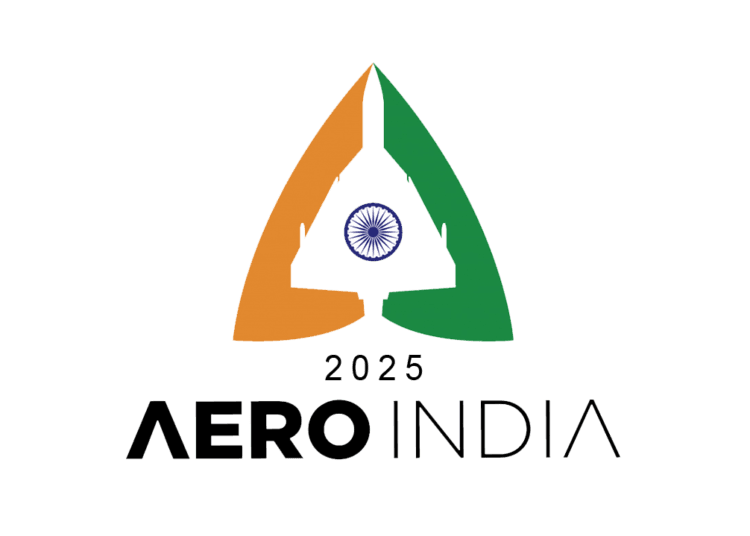Modi-Luxon want to further expand bilateral trade
Prime Ministers Narendra Modi and Christopher Luxon have welcomed the launch of FTA negotiations for a balanced, ambitious, comprehensive, and mutually beneficial trade agreement to achieve deeper economic integration http://pmindia.gov.in.
The Leaders agreed that a comprehensive trade agreement offers a significant opportunity to enhance trade and economic cooperation https://fieo.org/.
Luxon is on an Official Visit to India on 16-20 March 2025.
By leveraging each country’s strengths, addressing their respective concerns, and tackling challenges, a bilateral trade agreement can foster mutually beneficial trade and investment growth, ensuring equitable gains and complementarities for both sides, said the Prime Minister’s Office on 17 Mar following meetings held by the two leaders.
The Leaders committed to designate senior representatives to steer these negotiations to resolution as soon as reasonably possible.
Within the context of FTA negotiations, the leaders agreed to discussions between respective authorities on both sides to explore early implementation of cooperation in the digital payments sector.
The Prime Ministers welcomed sustained trade and investment flows between India and New Zealand and called for further exploring the potential to expand bilateral trade. They encouraged businesses on both sides to cultivate links; explore emerging economic and investment opportunities to build upon the complementarities of the two economies.
The Leaders called for greater two-way investment, reflective of the ongoing strong momentum in bilateral cooperation.
The Prime Ministers agreed to enhance the trade and investment relationship between India and New Zealand to realise its untapped potential and to contribute to inclusive and sustainable economic growth.
The Prime Ministers welcomed the signing of the Authorized Economic Operators Mutual Recognition Arrangement (AEO-MRA) under the aegis of the Customs Cooperation Arrangement (CCA) signed in 2024, which would facilitate easier movement of goods between the two countries by our respective trusted traders through close cooperation between customs authorities, thereby boosting bilateral trade.
The Leaders welcomed new cooperation on horticulture and forestry, including: the signing of the Memorandum of Cooperation on Horticulture which would enhance bilateral cooperation by promoting knowledge and research exchanges, development of post-harvest and marketing infrastructure; and the signing of a Letter of Intent on Forestry Cooperation that encourages policy dialogues and technical exchanges.
The Leaders recognized the positive role played by tourism in generating economic growth, increasing business engagements and generating greater understanding between people of the two countries. They welcomed the growing flows of tourists between India and New Zealand. They appreciated the update to the India-New Zealand Air Services Agreement and agreed to encourage their carriers for commencement of direct (non-stop) flight operations between the two countries.
Political, defence and security cooperation:
The Prime Ministers recognised the significance of parliamentary exchanges and encouraged regular visits of parliamentary delegations between the two countries.
The Prime Ministers acknowledged the shared history of sacrifice of Indian and New Zealand service personnel who fought and served alongside one another around the world over the past century.
The Prime Ministers welcomed sustained progress in defence engagements, including through participation in military exercises, staff college exchanges, regular port calls by naval ships, and exchange of high-level defence delegations. They recalled that the Indian Naval sailing vessel Tarini made a port call at Lyttelton, Christchurch, New Zealand in December 2024. They also referred to the upcoming port call in Mumbai by the Royal New Zealand Navy Ship HMNZS Te Kaha.
Both Leaders welcomed the signing of the India-New Zealand Memorandum of Understanding for Defence Cooperation. This will further strengthen bilateral defence cooperation and establish regular bilateral defence engagement. Both sides noted the need for ensuring the safety and security of sea lanes of communication and agreed there needs to be regular dialogue to discuss enhancement of maritime safety.
New Zealand welcomed India joining the Combined Maritimes Forces. Both Leaders welcomed advancement in defence ties during New Zealand command of Command Task Force 150.
Both Leaders appreciated the regular training exchanges of officers, including at Defence Colleges on reciprocal basis. Both sides agreed for enhanced capacity building cooperation.
Prime Minister Luxon expressed New Zealand’s interest in joining the Indo-Pacific Oceans Initiative (IPOI). Prime Minister Modi welcomed New Zealand into this partnership with like-minded countries which seek to manage, conserve and sustain the maritime domain.
Further cooperation as maritime nations is also being explored between India and New Zealand with discussions taking place between experts on the National Maritime Heritage Complex (NMHC) which is being established at Lothal, Gujarat.
Cooperation in science & technology and disaster management:
The two Leaders noted the significance of research, scientific connections, technology partnerships and innovation as an important pillar of the bilateral partnership and called for exploring such opportunities in mutual interest. Both sides stressed the need for stronger collaboration to develop and commercialize technologies in identified areas through closer collaboration between businesses, and industries.
The two sides recognized the challenges for their economies presented by climate change and the transition to low emissions climate resilient economies.
Prime Minister Luxon welcomed India’s leadership in the International Solar Alliance (ISA) and reiterated New Zealand’s strong support as a member since 2024.
Prime Minister Modi welcomed New Zealand joining the Coalition for Disaster Resilient Infrastructure (CDRI), which aims at making systems and infrastructure resilient in order to achieve the objectives of the Sustainable Development Goals (SDGs), the Paris Climate Agreement and the Sendai Framework for Disaster Risk Reduction.
The two Leaders welcomed work towards a Memorandum of Cooperation on earthquake mitigation cooperation between relevant authorities of India and New Zealand, which would facilitate inter alia exchange of experiences in earthquake preparedness, emergency response mechanism, and capacity building.
Education, mobility, sports and people to people ties:
Both Prime Ministers agreed that there exists great potential to further strengthen the growing education and community links between India and New Zealand. They encouraged academic institutions of both countries to build future-oriented partnerships focused on areas of mutual interest including in areas of science, innovation, new and emerging technologies.
The Leaders encouraged the creation of further opportunities for Indian students seeking quality education programmes in New Zealand. They noted the significance of skill development and mobility of skilled personnel to support expanded engagement in sectors, including science, innovation, and new and emerging technologies.
The two Leaders agreed, within the context of the trade agreement negotiations, which the Leaders have agreed to launch, to also launch negotiations on an arrangement facilitating the mobility of professionals and skilled workers between the two countries, while also addressing the issue of irregular migration.
The Leaders welcomed the signature of the refreshed Education Cooperation Arrangement between the Indian Ministry of Education and the New Zealand Ministry of Education. This Arrangement will facilitate the continued exchange of information on India’s and New Zealand’s respective education systems as the basis for strengthening the bilateral education relationship.
The Prime Ministers acknowledged the importance of robust systems of traditional medicine in India and New Zealand, and welcomed discussions between experts, including science and research experts, on both sides to understand and explore possible areas of cooperation, including through sharing of information and best practices and visits of experts.
Both Prime Ministers noted the growing interest among New Zealanders in Yoga and Indian music and dance, as well as the free observance of Indian festivals. They encouraged further promotion of bilateral ties including through music, dance, theatre, films, and festivals.
Cooperation in regional and multilateral fora:
Both Prime Ministers reaffirmed their commitment to supporting an open, inclusive, stable and prosperous Indo-Pacific where sovereignty and territorial integrity are respected.
The Leaders noted cooperation between India and New Zealand in various regional fora, including ASEAN-led fora such as the East Asia Summit, the ASEAN Defence Ministers’ Meeting Plus and the ASEAN Regional Forum. The Leaders reaffirmed the importance of these regional bodies and ASEAN centrality for furthering security and prosperity of the Indo-Pacific region and emphasised the importance of all parties maintaining peace and stability in the region.
Both Leaders emphasized on the importance of an effective multilateral system, centered on a United Nations that is reflective of contemporary realities, as a key factor in tackling global challenges. The two sides stressed the need for UN reforms, including of the Security Council through expansion in its membership, to make it more representative, credible and effective. New Zealand endorsed India’s candidature for permanent membership in a reformed UN Security Council. The two sides agreed to explore the possibility of extending mutual support to each other’s candidatures at the multilateral fora.
Both Leaders emphasized the importance of upholding the global nuclear disarmament and non-proliferation regime, and acknowledged the value of India joining the Nuclear Suppliers Group in context of predictability for India’s clean energy goals and its non-proliferation credentials.
Both Leaders reaffirmed their firm support for peace and stability in the Middle East and welcomed the agreement for the release of hostages and ceasefire of January 2025. They reiterated their call for continued negotiations to secure a permanent peace, which includes the release of all hostages and the rapid, safe and unimpeded humanitarian access throughout Gaza. Both Leaders stressed the importance of a negotiated two-State solution, leading to the establishment of a sovereign, viable and independent state of Palestine, and living within secure and mutually recognized borders, side by side in peace and security with Israel.
The Leaders exchanged views on the war in Ukraine and expressed support for a just and lasting peace based on respect for international law, principles of the UN charter, and territorial integrity and sovereignty.
The two Leaders reiterated their absolute condemnation of terrorism in all its forms and manifestations, and the use of terrorist proxies in cross-border terrorism. Both stressed the urgent need for all countries to take immediate, sustained, measurable, and concrete action against UN-proscribed terrorist organizations and individuals.
They called for disrupting of terrorism financing networks and safe havens, dismantling of terror infrastructure, including online, and bringing perpetrators of terrorism to justice swiftly. The two leaders agreed to cooperate in combating terrorism and violent extremism through bilateral and multilateral mechanisms.
The two Prime Ministers noted with satisfaction the progress in ongoing bilateral cooperation and reaffirmed their commitment to further strengthen and deepen the bilateral partnership for mutual benefit as well as for the benefit of the Indo-Pacific Region. They called for exploring the potential to deepen bilateral engagement and explore new avenues of cooperation, including in the fields of green and agriculture technologies.
List of Outcomes:
1. Launch of negotiations between India and New Zealand on a Free Trade Agreement (FTA);
2. Launch of negotiations between India and New Zealand on an arrangement facilitating the mobility of professionals and skilled workers;
3. New Zealand joins the Indo-Pacific Oceans’ Initiative (IPOI);
4. New Zealand becomes member of the Coalition for Disaster Resilient Infrastructure (CDRI)
Bilateral Documents:
Memorandum of Understanding on Defence Cooperation between the Ministry of Defence of India and the New Zealand Ministry of Defence;
Authorized Economic Operator – Mutual Recognition Agreement (AEO-MRA) between the Central Board of Indirect Taxes and Customs of India (CBIC) and the New Zealand Customs Service;
Memorandum of Cooperation on Horticulture between the Ministry of Agriculture and Farmers’ Welfare of India and the Ministry for Primary Industries of New Zealand;
Letter of Intent on Forestry between the Ministry of Environment, Forest, and Climate Change of India and the Ministry for Primary Industries of New Zealand;
Education Cooperation Agreement between the Ministry of Education of the Republic of India and the Ministry of Education of New Zealand; and
Memorandum of Cooperation in Sports between the Ministry of Youth Affairs & Sports of the Government of India and the Sport New Zealand of the Government of New Zealand. Fiinews.com










